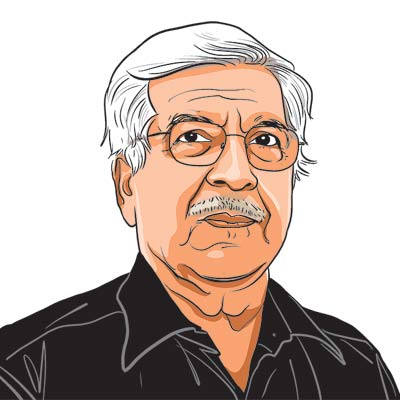Opinion The Capitalism debate
The debate on capitalism and its critics got a new life with the Asian meltdown and now the anniversary of Lehman Bros.
The debate on capitalism and its critics got a new life with the Asian meltdown and now the anniversary of Lehman Bros.
It does not take place in the capitalist countries where the issues as the pressure of the meltdown started really hurting on jobs and output,was the optimal role of the State and of strategic policies.
But in developing countries the argumentation is severe. It is a very Rashomon context with partial mind sets holding forth as the final growth enlightenment. India has consequences for the market of ideas elsewhere and in the global bazaar there is money in books and teaching policy.
The core argument is simple.
India was a socialist country under Indira Gandhi and suffered,with a Hindu growth rate. Poverty increased in absolute numbers,agriculture was neglected (the negative aggregate measure of support-AMS- argument) and social indicators suffered. Rajiv Gandhi was well intentioned but did not have a policy vision and engineered both unstable and unsustainable growth.
Then came the 91 Brettonwoods reform in the Narasimha Government and growth went up,poverty levels went down and the economy is on solid foundations,since. A blip or two are irrelevant. The facts are not so. India achieved food self reliance in the Seventies and Jeffrey Sachs recommends the India planning policy then for Sahelian Africa today,forgetting that these things don’t happen without political will and expertise and the negative AMS was incorrectly propagated even by its Washington based authors,as they now admit. India has been growing fast since the mid-Seventies,most certainly since the Eighties.
Deficits in the Rajiv Gandhi period were a lark as compared to what we are doing now. Doubts on sustainability were deliberately created by the successor government,by economists influential since. Poverty levels in India were less than in China in absolute numbers according to the World Bank,until that worthy organisation changed its measurements with very dubious methods last year. The change in social indicators in India compares well with East Asian countries.
They had better levels in the Sixties because the Japanese were probably better imperialists and have better levels now but India improved faster as I and later Virmani showed. So the facts are not there but the grin of the Cheshire cat remains.
On ideology the story is more complicated and interesting. India was never a monolithic communist empire. Its socialist leanings came from its anti-imperialist historical experience. In the first half of the last century it followed pure market policies and the per capita consumption of grain went down every five years from 200 kg in the quinquennium 1901/05 to 145 kg in the period before Independence in one of the cruelest episodes of human misery.
It had a vigorous private sector and policy was always walking on two legs,the Nehru technology industrialisation and the Gandhian rural self reliant village. The overarching frame of a democratic polity was correcting any excesses. The East Asian success was not comparative cost economics.
In a famous episode in the history of the spread of ideas by Robert Wade,the Korean architect of modernisation was to tell me sent as an emissary of Rajiv Gandhi that don’t listen to comparative cost,do what you must do,only do it well. We brought about agricultural and energy self reliance,but did not realise that efficient import substitution was the other side of export led growth. As I G Patel told me,’Yoginder,we failed to quickly realise that there was a model of strategic planning and policy making in Japan’.
We lost a decade and paid the price for it,but that was Rajiv Gandhi’s vision which drives us since. But capitalism was dead the way they tell us and is alive the way we tell them,producer companies,self help groups,Kalavatis and food security,austerity,public sector banks which don’t go away,artisan based clusters,exports and all.
As the great poet said let ideas come from anywhere into that land of freedom let me awake. But always be argumentative as the other wise one from Santiniketan says,for otherwise how will you know the gifts the Greeks bring in horses. Also never forget the fact that they are wrong,does not mean we are right. Always question on your own terms. At least that’s what you give me,an Indian university teacher,a near extinct animal now,a pension for.


